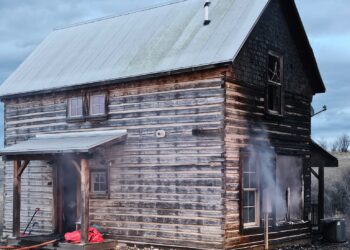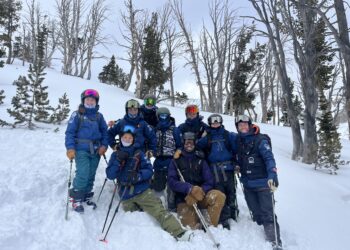Resort tax board grapples with private clubs, HOA dues
By Amanda Eggert EBS Senior Editor
BIG SKY – The Big Sky Resort Area District tax board continued to wade into the legality of taxing private club membership dues on Sept. 11, a potentially contentious issue that would significantly increase the district’s annual collections if implemented.
Resort tax board legal counsel Betsy Griffing has made headway since April, when she was first tasked with diving into the legality of the issue, but there’s still more work to be done.
Other states like Florida, Ohio and Idaho have taken up the question, but it hasn’t been decisively settled in Montana. The board has taken two approaches to determine whether or not membership dues could legally be taxed.
Since the ordinance outlining Big Sky’s resort tax parameters specifies that luxury goods and services are taxable, one tactic is to figure out whether or not private club membership is considered a luxury good or service. The other is to determine if private clubs fall under the umbrella of “destination ski resorts and other destination recreational facilities.” Those categories are taxable according to the ordinance, which was first passed in 1995 and amended in 2015.
Board members present included chair Mike Scholz, Jamie Kabisch and Kevin Germain, who recused himself from the discussion to avoid a potential conflict of interest. Germain works for Lone Mountain Land Company, Cross Harbor Capital Partner’s locally formed development subsidiary for Moonlight Basin and Spanish Peaks Mountain Club. Ginna Hermann participated in the meeting via conference call and Heather Budd was absent due to a family emergency.
While teasing apart legal definitions, the board is simultaneously grappling with a question of application: If the district starts collecting resort tax on private club dues and deposits, would it also apply to other home owner associations in Big Sky? In previous meetings, board members have pointed out that many Big Sky HOAs have access to shared amenities like ski locker rooms, pools and exercise facilities, and have wondered aloud whether there’s a fundamental difference between access to a pool and access to a private ski area.
The Yellowstone Club, Big Sky’s most expensive and exclusive private club, currently collects resort taxes for guest golfing and downhill skiing, but not for club members. Other private clubs in the area include Moonlight Basin and Spanish Peaks Mountain Club.
“There was nothing that I found in the resort tax law itself that prohibited the taxing of membership dues on private clubs,” Griffing said, adding that the type of membership—annual, one-time, transferable, conditional, etc.—is important to the discussion. “I can look to see if HOAs are such a different animal … to see if there would be a different conclusion.”
“It’s really about being taxed on usage of what you own,” Scholz said. “I’m thinking that ownership does make a difference.”
The board also discussed the possibility of getting the Montana Attorney General to help with a legal opinion—which Griffing said often takes up to 90 days—and the merit of forming a subcommittee to hash out these details. The board did not establish a subcommittee at the Sept. 11 meeting.
“We’re looking forward to being a part of the discussion as it moves forward over the next few weeks and months,” said Alex Iskendarian, a representative of Moonlight Basin and Spanish Peaks Mountain Club. “It’s rife with some potentially controversial issues like HOA dues.”
The board decided on several other items at the Sept. 11 meeting. It’s still considering a change to its governing documents that would allow it to distribute an appropriation over multiple years—likely two or three. Griffing is refining the language for that proposal, and it has yet to go before the board for an official reading.
A change to the allocation timelines would allow large, time-intensive and seasonally restricted projects like new construction to take place over a longer period of time. The intention is to allow more time for projects to gain necessary approvals and start construction within a more realistic timeline. It would also allow organizations greater flexibility to secure grants that might be contingent upon securing other outside funding.
In addition, the board agreed upon an operational restructuring. BSRAD Administrative Officer Whitney Brunner will take on the role of operational officer to focus upon tax collection and other broader operational initiatives, and the board will hire an administrative officer to provide additional support.
The Big Sky Resort Area District tax board will not meet in October. The board’s next meeting is scheduled for Nov. 8.













